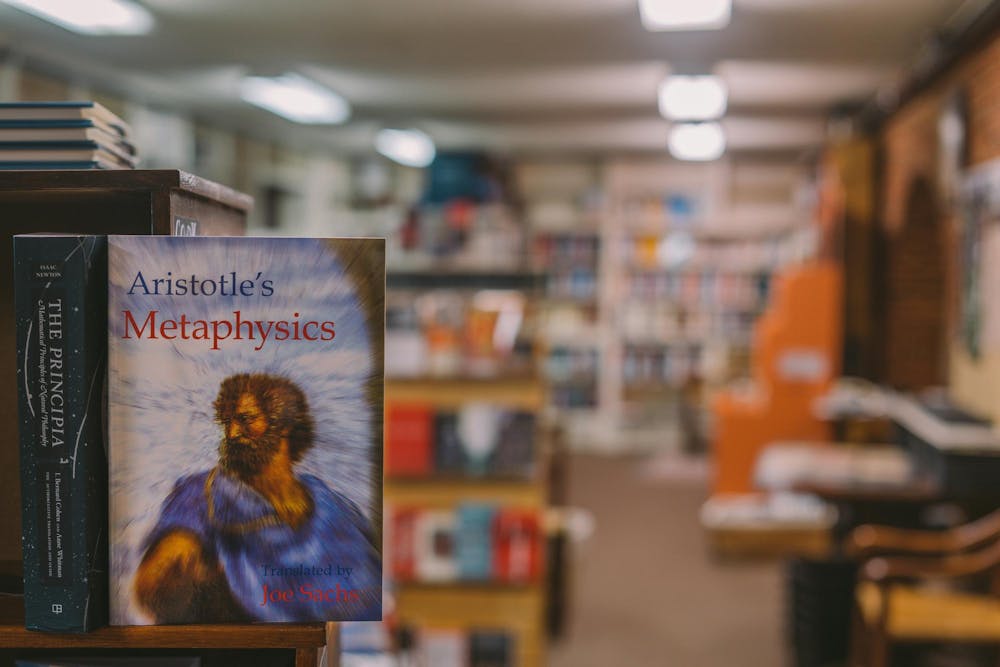In my last contribution to this newspaper, I will directly address a topic to which I have already paid some attention in this column: the value of the liberal arts education. As the humanities slowly die in America, I feel a sort of patriotic compulsion to do my part in their defense. I realize that I am adding to a long list of paeans to the humanities, so I will try to avoid what has already been written. You have already heard that liberal arts students can still find jobs. You have also heard about the benefits of small class sizes and “learning how to think, not what to think.” These arguments are true, but apparently not good enough to keep students enrolled. So, without further ado, here is an honest and original letter of recommendation for the liberal arts, addressed to the undecided underclassman.
Let’s start by admitting that the humanities come with some professional drawbacks. Business jobs saturate most of the postgraduate job market. An English major is objectively not the easiest route to a career in finance, and we don’t do ourselves any favors by pretending that it is. Humanities majors are condemned to the “why-my-major-is-useful” spiel at the career fair, to skepticism from family and friends and to independent study of Excel and other technical skills needed for many jobs. These obstacles are easily surmountable, hence the steady stream of graduates out of O’Shag and into the bloodless arms of prestigious investment bankers. Nonetheless, they are obstacles to employment, and therefore my argument must address a tradeoff. Why is it worth it to study the liberal arts? Why should you deal with more career uncertainty just to study something that educates the “whole person”? It's not enough to prove that the liberal arts are just as good as other courses of study. We must show that they are better.
The first thing that is better about the liberal arts is the students. Thanks to their reputation of being useless, liberal arts courses rarely see students who enroll without genuine interest in the subject. Liberal arts students don’t need the threat of a bad grade to take their studies seriously; they actually like being in class every day. Of course, plenty of non-humanities students enjoy their coursework, but it is generally true that liberal arts students are the most personally invested in learning. I have been told more than once by a non-humanities student to “just SparkNotes” my readings if I am behind: this is considered shameful amongst my classmates in the Program of Liberal Studies. Everybody at Notre Dame works hard, but the culture of the humanities encourages students to work hard for more than just a grade or a job.
The professors are also better in liberal arts classes. In a technical course, your professor wants you to pass the exam. In a humanities course, your professor wants you to be a better thinker, or even a better person, when you leave. Liberal arts professors use all sorts of eccentric tactics to accomplish this. They are generally weirder than other professors, but they also care more. They empower students, shock them or deliberately humble them as Socrates did his interlocutors. I took a few classes at Notre Dame that I will think about for the rest of my life. All of them were small liberal arts courses, taught by professors who cared about my personal growth.
Another thing that is better in the liberal arts is career discernment. Because there is no obvious career path for humanities majors, students are encouraged to spend time reflecting on what they want to do. We have more existential crises about the future, but it also means we choose our paths more carefully. We deliberately select careers that are fulfilling and contribute to society. Following graduation, Arts and Letters students consistently enter community service at higher rates than students in other colleges.
Don’t study the liberal arts because a brochure told you that some English major got a job at McKinsey. Study the liberal arts because you want to, because they are better. My final argument to you, the undecided underclassman: All things being even, don’t the artes liberales, the free arts, just sound like more fun?










